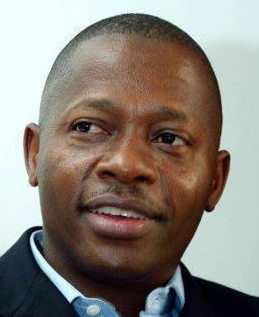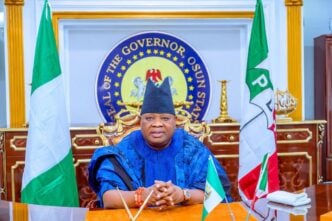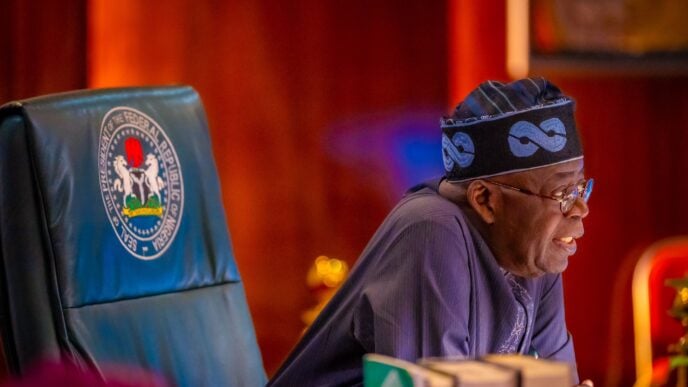An African American man gets his hair cut by a skilled stylist at a small business barbershop.
In over two decades in Abuja, I have met quite a few barbers; I estimate about 15 or so. I don’t remember most of them, especially those called to temporary duty when the regular one was unavailable. Like the campaign manifestoes of Nigerian politicians after elections, this category didn’t get a chance to materialize.
As you might have guessed, I’m rather particular about barbers. In fact, I have the same attitude to food and barbers: I don’t rush to a decision. The process of settling on a regular source is not casual. I’m quite particular about who gets the privilege to nurture and cultivate my disappearing locks; it takes a several tries before I endorse and confer on a barber the honour of weekly access to my hair.
“Why all dis wahala? Just take any barber you find. It’s not like you have that much hair. In fact there’s nothing left”, some haters masquerading as friends constantly remind me. I forgive their ignorance. They don’t understand that’s precisely the point: the less of anything you have – Naira, dollars, good roads, power supply, tomatoes, performing politicians – the more you value the little you have. It would be foolish of me to carry on as if my supply of hair is at the same level as Yahaya Bello’s limitless supply of dollars for paying school fees.
But let’s focus on the subject and not get carried away like Dino Melaye, the great man who loves to celebrate his latest state-of-the-art car while crying over poor governance.
Advertisement
While most of the barbers I have encountered in Abuja have disappeared into the anonymous regions of memory due to the unremarkable quality of their work or their personalities, a few stand out. Let’s start with the most startling.
Moses was a quiet man who very good at his job. He was my regular barber for about a year before he suddenly disappeared. None of his colleagues was willing to tell me what happened to him. Eventually I found out. Moses had gotten into a fight at a night club and things escalated fast. The other guy didn’t live to tell the story. Moses, gentle Moses, had stabbed his opponent with a broken bottle and his opponent expired soon after. Last I heard, Moses was still on the run.
There was also Uche, a pudgy, cheerful guy, possibly my best barber ever. A virtuoso with clippers, he had a deft, sure touch, with just the right balance of pressure and you left his saloon feeling that something special had happened to your head. Uche was as bouncy as a ball and charismatic. Customers waited hours for their turn, ignoring other available barbers desperate for a chance – and the tips that came along with it. The interminable wait finally convinced me to start hunting for a new barber. Time is money and the price of the magic eventually got too high.
Advertisement
There was the very talkative Fred, not as good as Uche but a decent barber in his own right. But he had a talent for complaining endlessly about how tough his life was, following up with aggressive begging for bigger tips. This habit detracted from the pleasure of getting a haircut in a pleasant, restful environment – one of the few masculine pleasures in a world dominated by Mother’s Days and Mexican soaps – and so, Fred, too quickly became history.
Also notable was Akin, a gangling, over-confident fellow who told me that he was a winner of a competition for barbers organized by the popular Wahl brand of clippers. He then proceeded to ignore my precise instructions about how I preferred my hair cut and did his thing according to the award-winning standards he was used to. He got upset when I subsequently ignored him. I hope that he eventually learns the important lesson that he who pays the barber dictates the cut.
There was also Bimbo, a very nice guy who became a friend in the Covid years of 2020 and 2021 when he used to come twice a month to do the honours for a hefty mark up. A likable chap, he was respectful but also carried himself with a certain natural dignity. But the quality of his work was not quite as great as his personality and eventually I had to move on.
There was Chris, the handsome Tiv boy, a doppelgänger for a youthful Majek Fashek before the late reggae star was devastated by drugs. Chris was a very passionate Chelsea fan (just a glance at his face told you how Chelsea performed in their last match). He was also working towards a music career. Chris’ barbing skills were ok but, over time, his standards slipped and I didn’t follow him to the new place he moved to, despite many calls and texts.
Advertisement
The barbers I have done business with are part of an extensive, ubiquitous and perennial hair care industry at the heart of personal and family lives. And their modest efforts add up to a lot. According to Statista figures, revenues in the hair care market will reach an estimated $1.46 billion in 2025 at an annual growth rate of 8.52%. That translates to an estimated $6.23 (over N10,000) generated per capita (per person) this year. That’s good money for entrepreneurs and the economy.
But the sector faces the usual challenges – rising cost of equipment and parts and customers with plummeting disposable income who have reduced visits to the barber in response or are now attending to their hair themselves. While a minority are thriving, most barbing outfits, according to Google AI, are “small, often standalone shops, (lacking) the infrastructure and scale necessary to compete internationally or realize significant economies of scale.”
I see the evidence of the struggle on my barber friends. Most live on the outskirts of Abuja and salaries don’t cover transport costs, never mind rent or food. So the tips are desperately needed. Customers are also under pressure. For me, the cost of a haircut has gone up from about N300 in 2003 to over N5000 (including a N1000 tip for my latest barber Benjamin, a jovial guy who lugs his significant “stomach infrastructure” around with unexpected nimbleness) every week. The economy urgently needs to improve for the sake of the barbers, the beggars hanging outside the saloon and millions of other suffering Nigerians.
Beside cost, at the personal level, there is a conundrum that often cannot be avoided: navigating the challenge of changing barbers one has bonded weekly with for a while, folks you have laughed with and shared opinions on politics, soccer, family and every issue under the sun. How do you pull the plug when you run into a better barber and a warm relationship can no longer make up for declining performance or an inconvenient location?
Advertisement
It’s difficult to have an honest conversation about the issue. “Emeka, I’m no longer satisfied with your poor performance and carelessness and I have decided to move on” is not quite appropriate. And there’s also a practical matter: you might need him again, if the new, regular barber is suddenly unavailable. So ghosting is often the only strategy left. And so with regret, you ignore calls, greet them ostentatiously when you run into them while ignoring the hurt look.
Divorce is always unpleasant, even when the relationship is a weekly, 30 minute affair anchored on Arsenal’s latest travails.
Advertisement
Nwabuikwu is a member of THISDAY editorial board.
Advertisement
Views expressed by contributors are strictly personal and not of TheCable.











